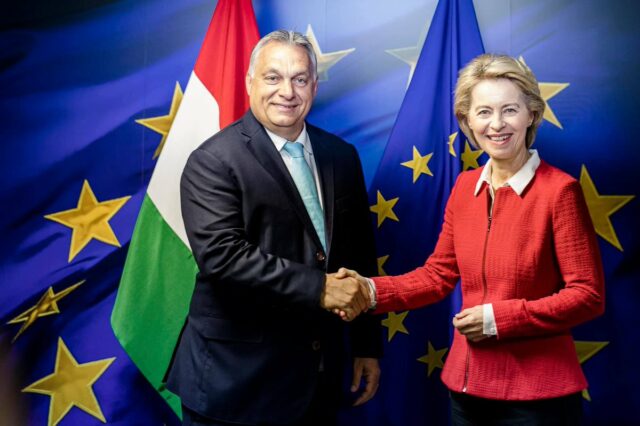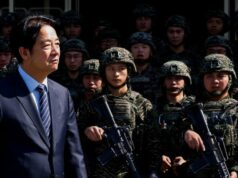NEW DELHI: Could governments use the coronavirus to muzzle democracy? This is not a trick question. Hungary’s Prime Minister Viktor Orban has through the infamous ‘coronavirus bill’, armed himself with almost unlimited powers and extended the ‘state of emergency’ allowing him to rule by decree. People can be jailed for up to five years for spreading rumours about the government’s response to the coronavirus. Clearly, if more governments follow the Orban blueprint, autocracy via the COVID-19 route might well become the new normal.
Orban’s sweeping new powers are courtesy the legislative majority he enjoys in the Hungarian Parliament. There was little or no opposition to his move, add to that the failure of the European Union to come down hard on Hungary.
Aside from a statement of concern by the European commission president Ursula von der Leyen and another banal statement by 13 EU member states urging that that “EU principles and values” be upheld, the bloc seems unable or unwilling to censure Orban. And so, it remains to the western media to label this once-upon-a-time dissenter — he started out as one when he began his political career in the 1990s — as a liberal-turned-fascist.
However, former ambassador PS Raghavan, an expert on eastern Europe and Russia, believes that such labels are misleading. “Orban was never a liberal dissenter nor is he a fascist. He is simply a pragmatic politician. He celebrated democracy at the start of his career because it was then fashionable to do so and is now doing the reverse because he feels it needs to be done to remain in power.”
“He is not alone in this. Other east European countries such as Poland too have authoritarian systems and look to control the media and judiciary. And no matter what the West thinks, these governments are wildly popular thanks to strong welfare systems and other state measures. Thanks to this such leaders usually retain popularity with strong majorities within their countries.”
Apart from popular authoritarian figures, there are other reasons why East Europe has been wary of democracy. As experts point out, East Europe’s transition to democracy has been relatively new. It was only in the 1990s, when a group of new leaders such as Lech Walesa of Poland, Viktor Orban himself from Hungary and some other leaders, introduced democracy to their nations. So, the idea of western liberal democracy (which many of us take for granted), is new to east Europe and it will take time before it is interwoven into the country’s social fabric. These leaders were also able to capitalise on fears about the collapse of the Soviet Union, fears which were not unfounded as it turned out.
Today, Orban stands tall with a two-thirds majority in Parliament, allowing him to do pretty much as he pleases. This can be seen in his foreign relations. Despite joining the EU in 2004, he is good friends with Russia’s President Vladimir Putin and US President Donald Trump, both of whom appreciate his standing up to Europe. The result is the EU’s continued friction with Hungary.
Bharti Sarkar, professor at the Centre for European Studies in JNU, believes that such friction will continue. “The jostling for power within the EU will continue. Hungary is already getting funds from the EU (it joined in 2004) and NATO, so he sees the value of Europe but only up to a point. Orban wants to safeguard his sovereignty so he will not allow for stronger EU unity.”
“Also, post the 2008 global recession, he has been increasingly looking eastwards. Thus, the outreach to Russia remains strong. He is also is taking advantage of the 16+1 summit (Central and Eastern European Countries (CEEC) and China) in a bid to reach out to Beijing.”
The increasingly authoritarian path that Orban and his other eastern European contemporaries are taking, shows the different direction in which Europe and the EU is being pulled. But since Brexit, EU member states are showing an increasing preference for charing their own foreign policies, France for example. The EU’s failure to mount a united response to the coronavirus, has all but ensured that Orban’s “corona coup” will pass unchallenged and further questions will be asked about the bloc’s future. Or whether it even has one?
Traveller, bibliophile and wordsmith with a yen for international relations. A journalist and budding author of short fiction, life is a daily struggle to uncover the latest breaking story while attempting to be Hemingway in the self-same time. Focussed especially on Europe and West Asia, discussing Brexit, the Iran crisis and all matters related is a passion that endures to this day. Believes firmly that life without the written word is a life best not lived. That’s me, Ashwin Ahmad.





